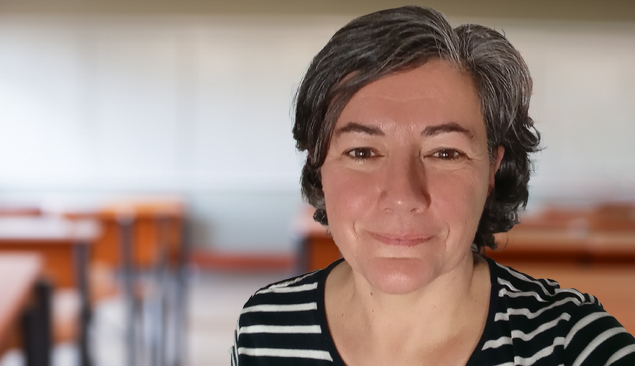
Cecilia’s story
Iosis strengthens my work with the children
Cecilia, a social worker with Iosis, has been at St Anne’s Catholic School in Manurewa for nearly two years.
“Being part of the Iosis SWiS (Social Workers in Schools) team really helps,” she says. “It means I’ve got access to a wraparound support system should the children or their whānau need more specialised services.”
St Anne’s is a full primary school ranging from new entrants to Year 8 students (Form 2). Her full-time role means that Cecilia can be available to students as and when they need her. “Children’s needs change as they move through the school so being able to have an ongoing relationship with them is helpful – we get to know each other well during that time,” she says.
Cecilia is one of 9 Iosis SWiS supporting tamariki and whānau to grow and develop in the local community. She says that her job is about building trusted, supportive relationships with children, so they feel safe to talk to her and share their concerns.
“It can take a while for each child to reach a place where they start to open up and share something that is bothering them,” she explains. “This is a process that can’t be rushed – the visits might start with the child and I doing an activity together like colouring or playing a game. It could be months before they feel safe enough to share their concerns and feelings with me.” Cecilia sees this unconditional support as being the foundation of her work.
She has seen new trends emerging since COVID, particularly around mental wellbeing. “Overall, it seems mental health issues like self-harming and anxiety are now more prevalent amongst younger children since COVID,” she remarks. While this may be a reason a child initially comes to visit her, Cecilia says a case is never closed and the child can pop back at any time.
Cecilia believes a real strength of the SWiS system is the long-term support they’re able to provide students throughout their school years. “Like all of us, children have their ups and downs. A child, after receiving support, might go on to flourish for a time, but then have a hiccup, or come across something they’re not sure how to handle. It’s reassuring for them to know we’re here for them when they need us.”
Cecilia says being present for the student when they need her is one of the most rewarding parts of her job. “In many ways I see my job as being the voice of the child and a part of my role is to share with teachers and the school leadership what I think they should be aware of in terms of a child’s behaviour,” she explains. “For example, discussing with a child’s teachers the reasons why they are acting out in class and ways this can be managed rather than them being labelled as a ‘naughty student’ who doesn’t follow the rules.”
If children are affected by challenges their parents face at home, the Iosis connection means support can also be provided to the parents. Often parents engage with Iosis’s practical parenting programmes and services such as counselling, while Cecilia works alongside the child. “It is a really effective approach when both the child and parents are being supported to work through challenges they are dealing with,” she says.
An example Cecilia shares is working with a mother and her child who weren’t getting on. Cecilia created a three-pronged approach in which she ran sessions with the mother and child, the mother attended the parent support programmes at Iosis, and Cecilia had weekly one-to-one sessions with the child. “The mother learnt the parenting skills she needed to build a positive relationship with her daughter, the child felt heard and supported and both had a safe space in our facilitated sessions to share and be heard. It worked well.”

